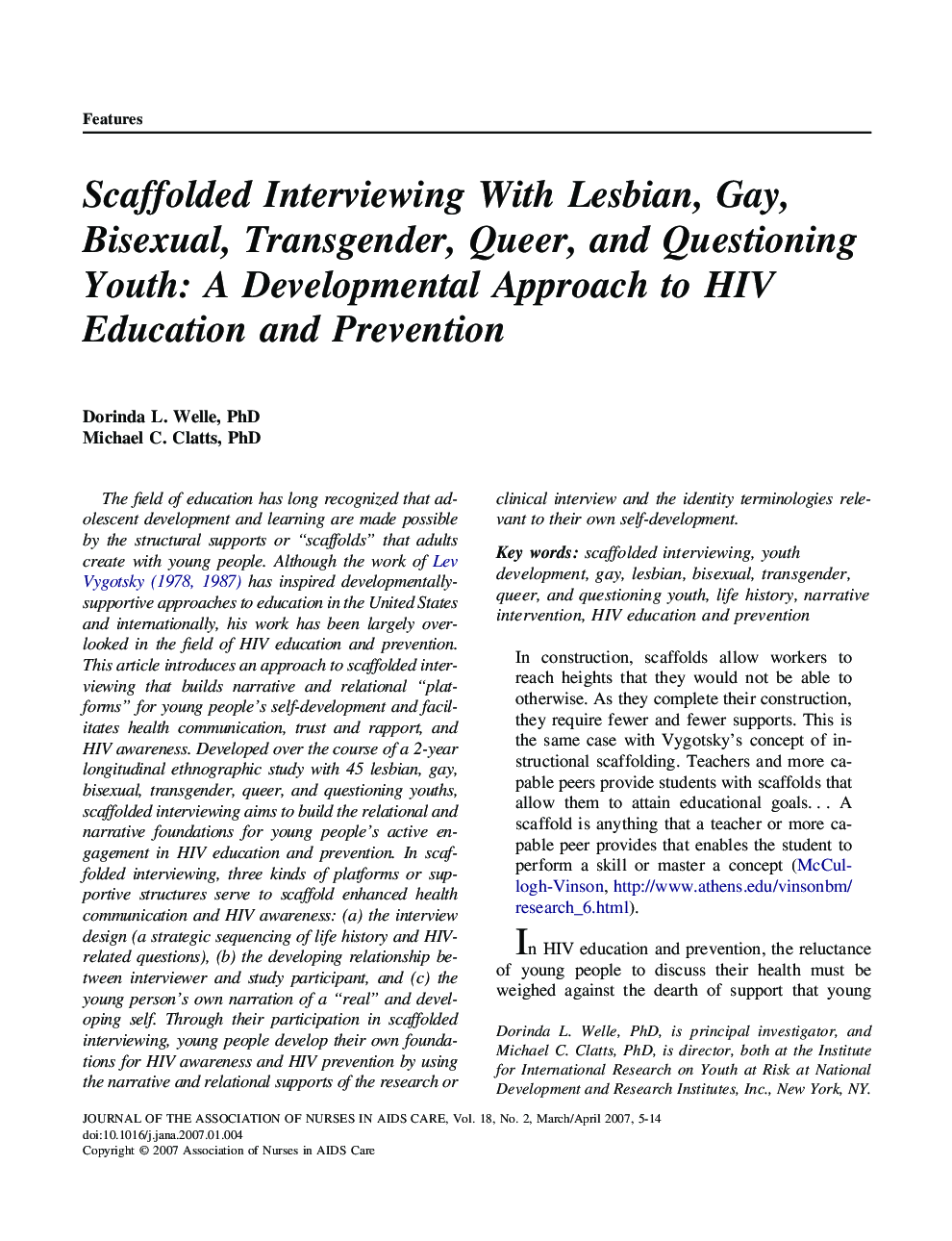| Article ID | Journal | Published Year | Pages | File Type |
|---|---|---|---|---|
| 2659062 | Journal of the Association of Nurses in AIDS Care | 2007 | 10 Pages |
The field of education has long recognized that adolescent development and learning are made possible by the structural supports or “scaffolds” that adults create with young people. Although the work of Vygotsky 1978 and Vygotsky 1987 has inspired developmentally-supportive approaches to education in the United States and internationally, his work has been largely overlooked in the field of HIV education and prevention. This article introduces an approach to scaffolded interviewing that builds narrative and relational “platforms” for young people’s self-development and facilitates health communication, trust and rapport, and HIV awareness. Developed over the course of a 2-year longitudinal ethnographic study with 45 lesbian, gay, bisexual, transgender, queer, and questioning youths, scaffolded interviewing aims to build the relational and narrative foundations for young people’s active engagement in HIV education and prevention. In scaffolded interviewing, three kinds of platforms or supportive structures serve to scaffold enhanced health communication and HIV awareness: (a) the interview design (a strategic sequencing of life history and HIV-related questions), (b) the developing relationship between interviewer and study participant, and (c) the young person’s own narration of a “real” and developing self. Through their participation in scaffolded interviewing, young people develop their own foundations for HIV awareness and HIV prevention by using the narrative and relational supports of the research or clinical interview and the identity terminologies relevant to their own self-development.
